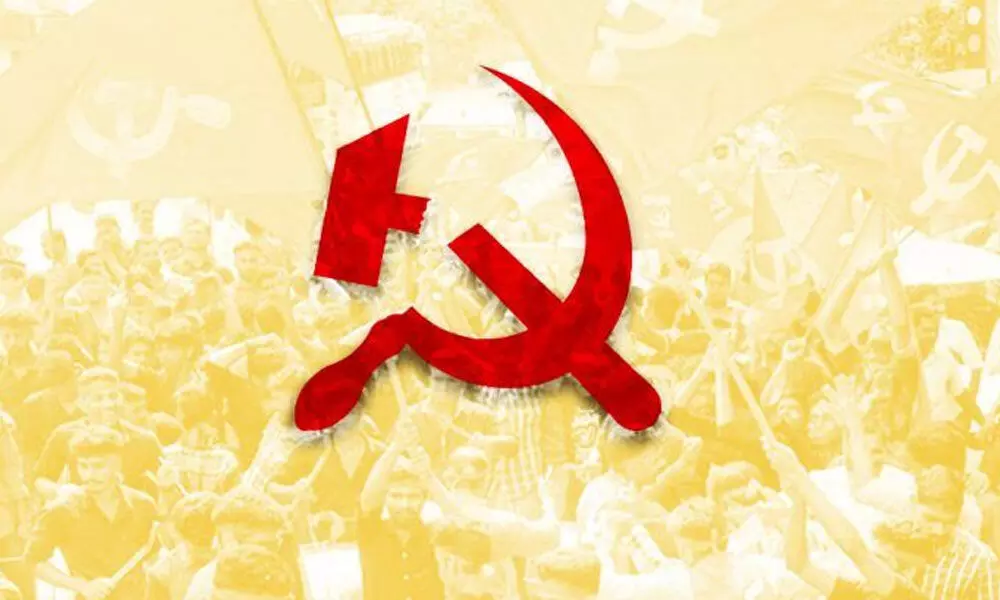Communism, a peculiar and short-sighted philosophy

Hand over TIDCO houses to beneficiaries: CPI
The two-part article by Mohan Kanda manages to give a highly sanitised version of Communism in India
The two-part article by Mohan Kanda manages to give a highly sanitised version of Communism in India. No single ideology has been more damaging to the spirit of India and Sanatana Dharma than the imperialist ideology of Communism and Marxism. Sita Ram Goel and Arun Shourie have explored them deeply in their essays and books.
Communist societies (Soviet Russia, China) reduced Marxism to a severe monotheism by being the only doctrine and the only Saviour. They could not help becoming totalitarian enemies of human freedom. Communism was an instrument of Soviet foreign policy, particularly with Stalin, in its drive towards world domination. It inevitably comes into conflict with positive nationalism drawing inspiration from its own cultural heritage and socio-political traditions.
Communist Party of India, a section of the Communist International, started in far-off Tashkent in October, 1920. The British initially imposed a ban on the Communist party and made Communist literature easily available to revolutionaries to wean them away from this 'terrorist' path. Paradoxically, many patriots became convinced Communists and swelled the ranks of the party after discharge from the prison. In the public eye, these patriots retained their stature for their services. Communists became patriots in a reflected glory.
The dissonance between Communism and positive nationalism in India was starkly evident during the Second World War. The Communist Party of India had initially opposed British imperialism and the Muslim League. In 1941, Hitler invaded the Soviet Union. Simultaneously, the Congress launched the Quit India Movement in August 1942. The Communists in the Congress opposed the Quit India resolution because now the 'imperialist war' became a 'people's war' simply because an enemy of Britain had invaded the Soviet Union. An enemy (British) of an enemy (Germany) invading a friend (Soviet Union) became a friend. British imperialism became British bureaucracy. The Communists had a significant contribution towards the creation of Pakistan, perhaps next only to that of the Muslim League.
Its intellectuals have remained intensely inimical to the cultural traditions and heritage of India. Communism targets Sanatana Dharma as superstition, obscurantism, and priest craft and denounces the Dharmashastras as repositories of primitive prescriptions, Machiavellian morality, caste oppression, untouchability, degradation of women, and so on. It condemns all Indic philosophies as Brahminical conspiracies to suppress Lokayata or atheism.
However, as the most important exercise in Independent India, Communist historians, gaining great influential power in the academic universities under a political patronage, have ridiculed every hero, period, episode, and precedent in which Hindus can take pride. In a peculiar and short-sighted philosophy of associating today's Muslims with Islamic rulers of the past, they managed to completely whitewash the brutality of the Islamic invaders. This gross falsification of history is an injustice to all Indians, including Muslims.
In the intellectual sphere, Communism uses effectively a difficult language of doublespeak; it constantly discovers conspiracies against the working class and the minorities preventing harmony by pitching one against the other; and are adept at 'swearology.' Mahatma Gandhi (bourgeois scoundrel), Rabindranath (mageer dalal or pimp), Patel and Nehru (fascist duo) had some colourful names.
Unfortunately, India's political language describes 'Leftist', 'Rightist', 'Centrist', and 'Right or Left of Centre' positions without telling us what 'Centre' means. Certain groups appropriated one label- 'Leftist' for themselves and reserved 'Rightist' for opponents without permission or prior consultation. The political language of Communists has been rich in introducing new terms. The heavy influence of this philosophy in the dominant ruling party after independence, the academia, and the media made sure that we internalised many of these toxic discourses. The peculiar political language evolved mainly by the Communists have not only misunderstood the Indian traditions but have gone a step further in maligning the Hindu traditions and culture.
Hindu society becomes a 'crowd of caste-ridden, cow-worshipping and practitioners of obnoxious obscurantism'. The Leftists-Communists-Marxist-Socialist rainbow spectrum laud themselves as progressive, revolutionary, socialist, secularist, and democratic. Simultaneous is the denunciation of 'Rightists' or any opponent as reactionary, revivalist, capitalist, and fascist. The intellectual elite are extremely good at using difficult to counter Communist catchphrases: bourgeois and proletarian; class struggle and class collaboration; revolution and counter-revolution; bourgeois nationalism and proletarian internationalism; fascist forces and the democratic front, and so on.
Nationalists led by Gandhi could not understand the nature and purpose of this obscure language. The Communists considered Gandhi as their greatest enemy because he could wean away the masses effectively, something which they hoped to do with their Indian leaders. Though the intellectuals and the academia soak themselves in a rich Communist language, it is fortunate that Indian population has thought it fit to reject them politically. Historically, Russia, China, and Bengal show clearly how Communism and Socialism can only cause physical and intellectual violence but not progress.
Dr Pingali Gopal, Warangal










